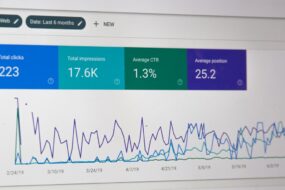
When I first delved into the world of digital marketing, I quickly realized that Search Engine Optimization (SEO) is a cornerstone of online visibility. At its core, SEO is the practice of enhancing a website’s visibility on search engines like Google, Bing, and Yahoo. The primary goal is to attract organic traffic, which refers to visitors who arrive at my site through unpaid search results.
This is crucial because higher visibility often translates to increased traffic, which can lead to more conversions, whether that means sales, sign-ups, or any other desired action. The importance of SEO cannot be overstated. In a digital landscape where millions of websites compete for attention, having a solid SEO strategy can set me apart from the competition.
It’s not just about being found; it’s about being found by the right audience. When I optimize my website effectively, I can ensure that it appears in front of users who are actively searching for the products or services I offer. This targeted approach not only increases the likelihood of engagement but also enhances the overall user experience, as visitors find what they are looking for more easily.
Key Takeaways
- SEO stands for search engine optimization and is important for improving a website’s visibility on search engines.
- Keywords are crucial for SEO and should be used strategically in website content, meta tags, and URLs.
- On-page optimization involves optimizing website content, meta tags, and URLs to make them more search engine friendly.
- Off-page optimization focuses on building authority and trust through link building and social media engagement.
- Quality content is essential for SEO as it helps to attract and engage visitors, and improve search engine rankings.
Keywords and How to Use Them Effectively
Keywords are the backbone of any successful SEO strategy. They are the specific words and phrases that users type into search engines when looking for information. Understanding how to identify and use these keywords effectively has been a game-changer for me.
I start by conducting thorough keyword research using tools like Google Keyword Planner or SEMrush. This helps me discover not only high-volume keywords but also long-tail keywords that may have less competition but are highly relevant to my niche. Once I have a list of targeted keywords, the next step is to incorporate them naturally into my content.
I’ve learned that keyword stuffing—overloading my content with keywords—can actually harm my SEO efforts. Instead, I focus on creating high-quality content that provides value to my readers while seamlessly integrating keywords in a way that feels organic. This includes placing keywords in strategic locations such as titles, headings, and throughout the body of the text.
By doing this, I can improve my chances of ranking higher in search results while ensuring that my content remains engaging and informative.
On-Page Optimization: Making Your Website Search Engine Friendly

On-page optimization is another critical aspect of SEO that I’ve come to appreciate deeply. This involves optimizing individual pages on my website to improve their search engine rankings and earn more relevant traffic. One of the first things I focus on is ensuring that each page has a unique and descriptive title tag and meta description.
These elements not only help search engines understand the content of my pages but also entice users to click through when they see my site in search results. In addition to title tags and meta descriptions, I pay close attention to the structure of my content. Using header tags (H1, H2, H3) helps organize my content and makes it easier for both users and search engines to navigate.
By optimizing images with alt text and ensuring that my URLs are clean and descriptive, I can further enhance my on-page SEO efforts.
Off-Page Optimization: Building Authority and Trust
While on-page optimization is essential, off-page optimization plays a crucial role in establishing my website’s authority and trustworthiness in the eyes of search engines. This involves activities that occur outside of my website but still impact its ranking potential. One of the most effective strategies I’ve employed is building relationships with other websites and influencers in my industry.
By engaging with them through guest blogging or social media collaborations, I can increase my site’s visibility and credibility. Another vital component of off-page optimization is social media marketing. Sharing my content across various platforms not only drives traffic back to my site but also encourages others to share it, creating a ripple effect that can enhance my online presence.
Additionally, participating in online communities and forums related to my niche allows me to establish myself as an authority while generating valuable backlinks to my site. These backlinks signal to search engines that my content is trustworthy and relevant, which can significantly boost my rankings.
The Importance of Quality Content for SEO
Quality content is perhaps the most critical element of any successful SEO strategy. I’ve learned that creating valuable, informative, and engaging content not only attracts visitors but also keeps them on my site longer, reducing bounce rates and signaling to search engines that my site is worth ranking higher. When I focus on providing solutions to common problems or answering frequently asked questions within my niche, I can establish myself as a go-to resource for users.
Moreover, regularly updating my content helps maintain its relevance and freshness, which search engines favor. I’ve found that incorporating various formats—such as videos, infographics, and podcasts—can enhance user engagement and cater to different preferences among my audience. By prioritizing quality over quantity, I can create a loyal readership that values what I have to offer, ultimately leading to better SEO outcomes.
The Role of Backlinks in SEO

Not All Backlinks Are Created Equal
I’ve learned that not all backlinks are created equal; links from reputable sites carry more weight than those from lesser-known sources.
One effective strategy I’ve employed is creating shareable content that naturally attracts backlinks. This could be in the form of comprehensive guides, original research, or infographics that others find valuable enough to link back to.
Diversifying My Backlink Profile
Additionally, I actively seek opportunities for guest posting on reputable blogs where I can include links back to my site. By diversifying my backlink profile and ensuring that I’m earning links from various sources, I can enhance my site’s authority and improve its chances of ranking higher in search results.
Measuring Success: Using Analytics to Track Your SEO Efforts
To truly understand the effectiveness of my SEO efforts, I’ve realized the importance of measuring success through analytics. Tools like Google Analytics provide invaluable insights into how users interact with my website. By tracking metrics such as organic traffic, bounce rates, and conversion rates, I can gauge which strategies are working and which areas need improvement.
I also pay close attention to keyword rankings using tools like Ahrefs or Moz. Monitoring how specific keywords perform over time allows me to adjust my strategy accordingly. If certain keywords are underperforming, I can revisit the content associated with them and make necessary adjustments—whether that’s optimizing existing content or creating new pieces altogether.
By regularly analyzing data and making informed decisions based on those insights, I can continuously refine my SEO strategy for better results.
Common SEO Mistakes to Avoid
As I’ve navigated the complexities of SEO, I’ve encountered several common mistakes that can hinder progress if not addressed. One major pitfall is neglecting mobile optimization. With an increasing number of users accessing websites via mobile devices, failing to ensure a mobile-friendly experience can lead to lost traffic and lower rankings.
Another mistake I’ve observed is overlooking local SEO if applicable to my business model. For businesses serving specific geographic areas, optimizing for local search terms and ensuring accurate listings on platforms like Google My Business is essential for attracting local customers. Additionally, I’ve learned that ignoring technical SEO aspects—such as site speed, broken links, or improper redirects—can negatively impact user experience and search engine rankings.
In conclusion, mastering SEO is an ongoing journey filled with learning opportunities and challenges. By understanding its fundamental components—from keyword research to quality content creation—I can develop a robust strategy that enhances my online presence and drives meaningful traffic to my website. As I continue to refine my approach and stay updated with industry trends, I’m confident that these efforts will yield long-term success in the ever-evolving digital landscape.
FAQs
What is SEO?
SEO stands for Search Engine Optimization. It is the process of optimizing your website to improve its visibility and ranking in search engine results pages (SERPs).
Why is SEO important?
SEO is important because it helps your website rank higher in search engine results, which can lead to increased organic traffic and visibility for your business.
What are the key components of SEO?
The key components of SEO include keyword research, on-page optimization, off-page optimization, technical SEO, and local SEO.
What is on-page optimization?
On-page optimization involves optimizing individual web pages to rank higher and earn more relevant traffic in search engines. This includes optimizing content, meta tags, and internal linking.
What is off-page optimization?
Off-page optimization refers to actions taken outside of your own website to impact your rankings within search engine results pages. This includes link building and social media marketing.
What is the difference between white hat and black hat SEO?
White hat SEO refers to ethical and legitimate SEO practices that comply with search engine guidelines, while black hat SEO refers to unethical and manipulative practices that violate search engine guidelines.
How long does it take to see results from SEO?
The time it takes to see results from SEO can vary depending on various factors such as the competitiveness of the industry, the quality of the website, and the effectiveness of the SEO strategy. Generally, it can take several months to start seeing significant results from SEO efforts.








No Comments